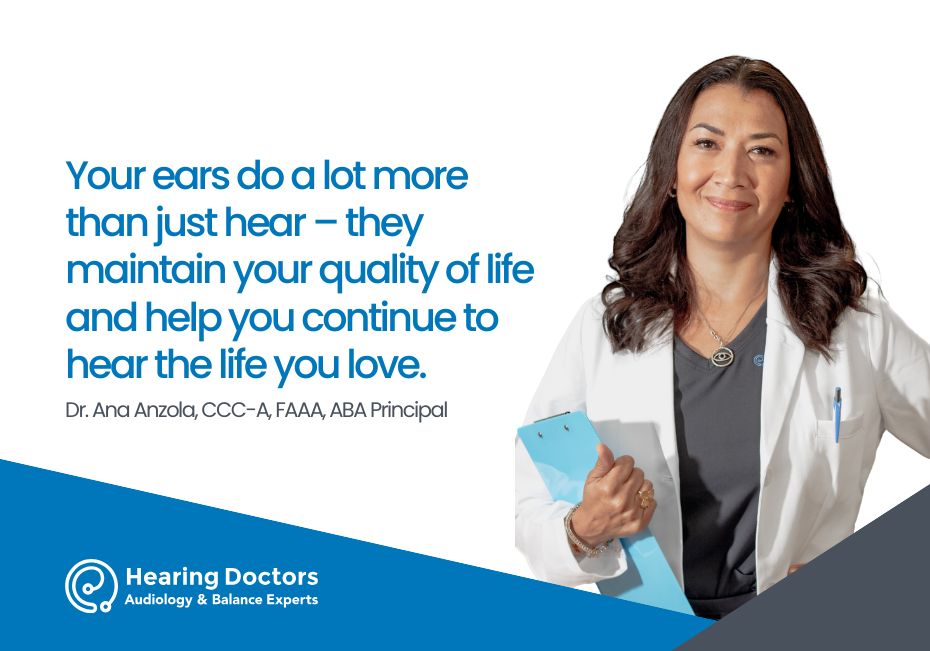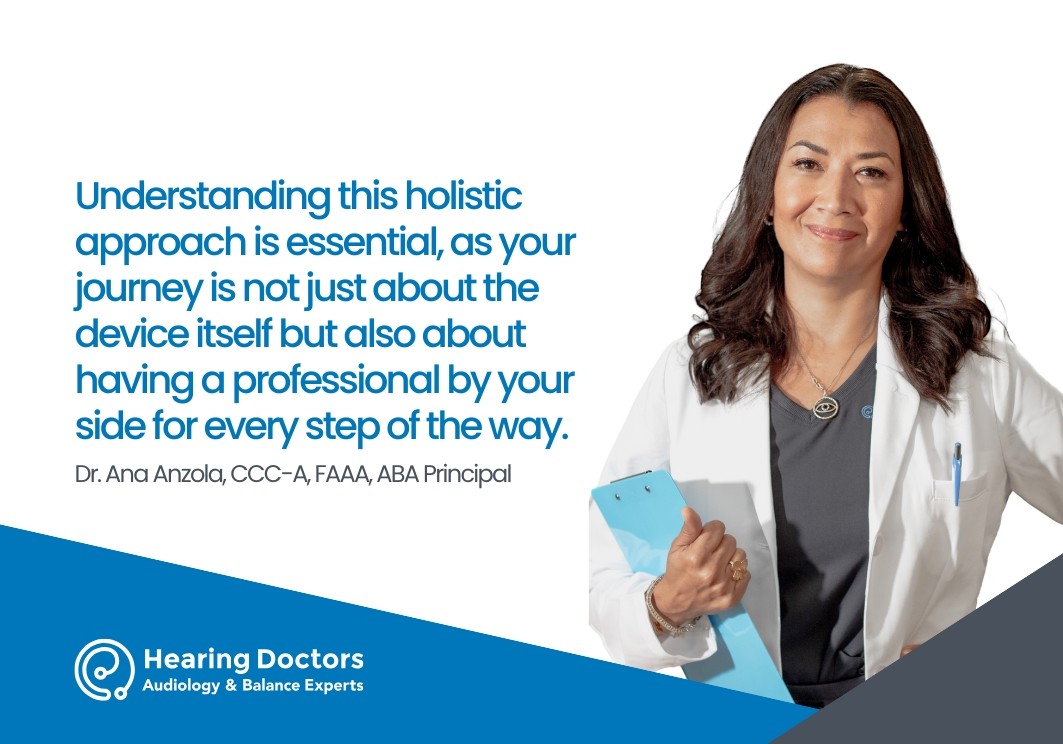Dec 10, 2023
Dr. Ana
Anzola, CCC-A, FAAA, ABA Principal
Cognitive delay encapsulates a range of disorders affecting cognitive abilities, including memory, attention, and problem-solving skills. It can manifest at any age, with varying degrees of severity. This blog sheds light on different aspects of cognitive delay, its symptoms, and available treatment options, providing a comprehensive understanding of this condition.
The connection between auditory and cognitive health is profound. For instance, challenges in auditory processing might sometimes coincide with cognitive delays, underscoring the importance of a holistic approach to cognitive and auditory health.
Types of Cognitive Delay
Cognitive delay can broadly be categorized into two types – those appearing in adults and those in toddlers. While the underlying causes may vary, the impact on an individual’s ability to function and carry out daily tasks remains a significant concern.
For a deeper dive, our Enhancing Cognitive Health and Well-Being blog explores the broader spectrum of cognitive health and well-being, providing a holistic understanding of cognitive functionality.
Symptoms of Cognitive Delay
The symptoms of cognitive delay can range from mild to severe and may include difficulty in learning new things, understanding complex ideas, problem solving, or even communicating effectively. Recognizing these symptoms early can pave the way for timely intervention and improved quality of life.
A glance at reputable sources like the American Academy of Pediatrics can provide more detailed information on identifying and understanding cognitive delay symptoms in toddlers and adults.
Treatment for Cognitive Delay
Treatment options for cognitive delay may include cognitive rehabilitation therapy, medication, and supportive services. The objective is to enhance the individual's cognitive function and help them lead a fulfilling life. Early diagnosis, possibly through services like those offered at Cognivue, can be a game-changer in managing cognitive delays effectively.
Moreover, certain auditory therapies can also contribute to managing cognitive delays, emphasizing the intertwined nature of auditory and cognitive health.
Examples of Cognitive Delays
Real-world examples or case studies of individuals experiencing cognitive delays can provide a better understanding of the challenges faced and the potential benefits of early intervention and treatment.
What Next?
Understanding cognitive delay and having the knowledge to seek timely intervention can significantly improve an individual’s quality of life. Early detection through cognitive screening services like Cognivue can provide invaluable insights and pave the way toward personalized treatment plans.
Furthermore, diving into ways to enhance cognitive health, as elaborated in our next blog, Enhancing Cognitive Health and Well-Being, can provide a well-rounded understanding and approach toward a cognitively healthier life.
Popular Blogs

Jun 3, 2025
Dr. Ana
Anzola, CCC-A, FAAA, ABA Principal
Understanding Types of Hearing Loss: Sensorineural, Conductive, and Mixed

May 21, 2025
Dr. Ana
Anzola, CCC-A, FAAA, ABA Principal
What Impact Is Artificial Intelligence Having on Hearing Aid Technology?

Apr 28, 2025
Dr. Ana
Anzola, CCC-A, FAAA, ABA Principal
Do You Think You’re Too Young for Hearing Loss?

Apr 15, 2025
Dr. Ana
Anzola, CCC-A, FAAA, ABA Principal
The Best Hearing Aids in 2025: Insights From a Doctor of Audiology


